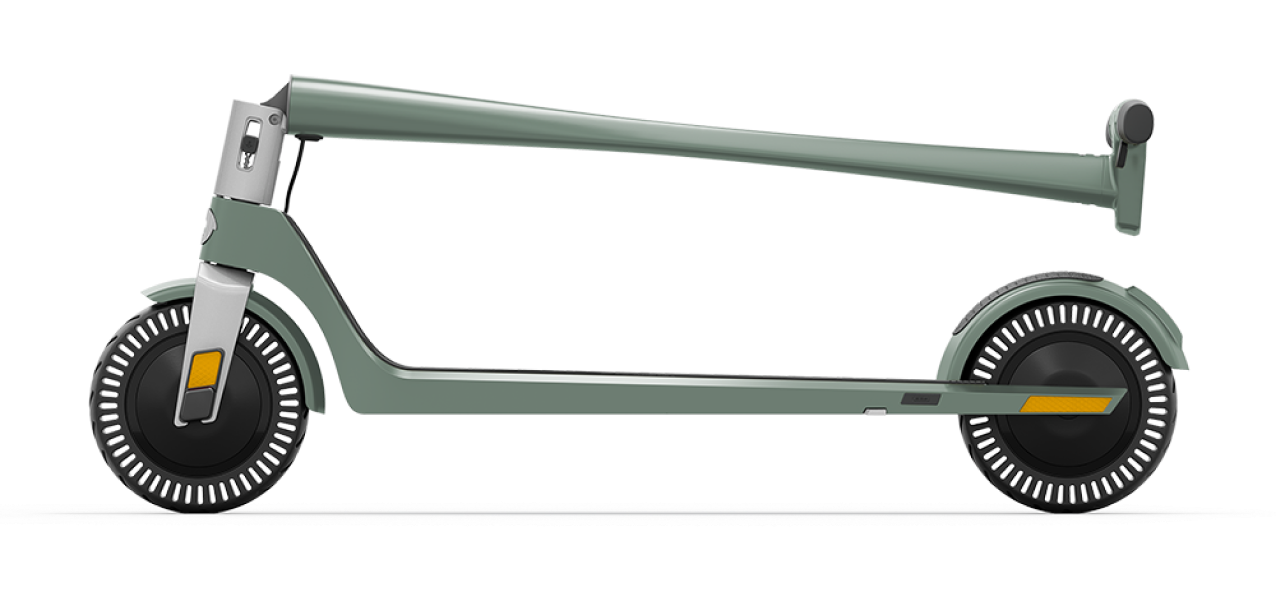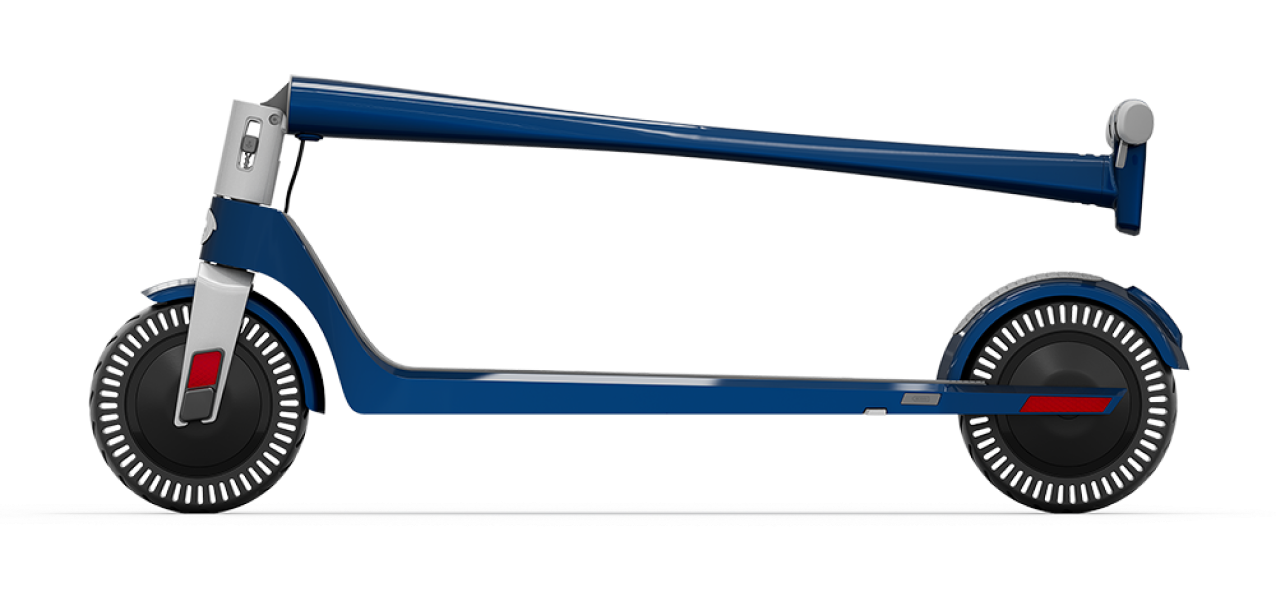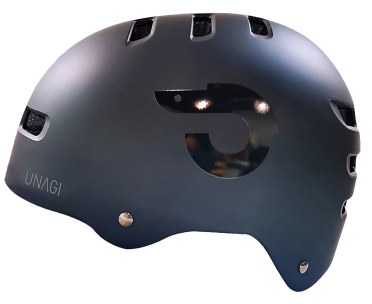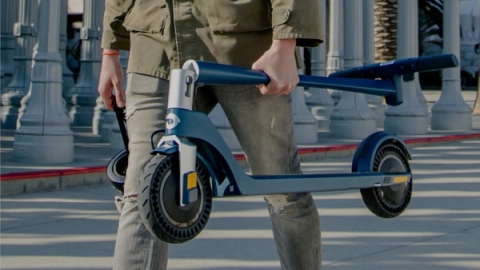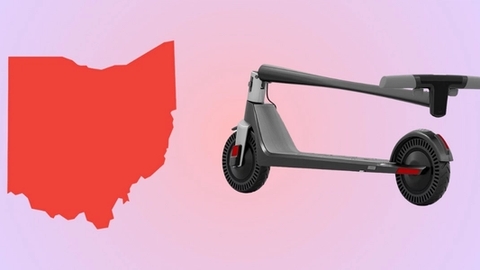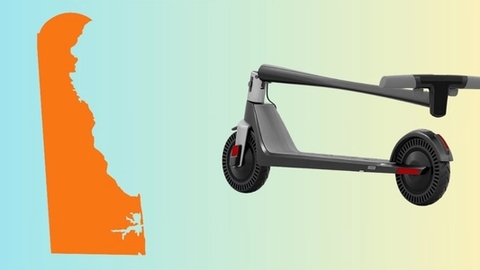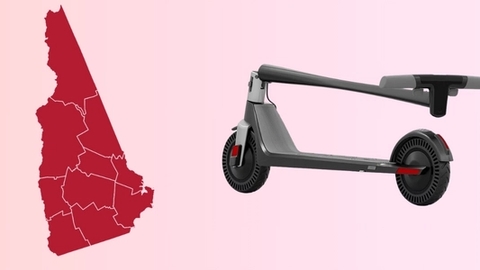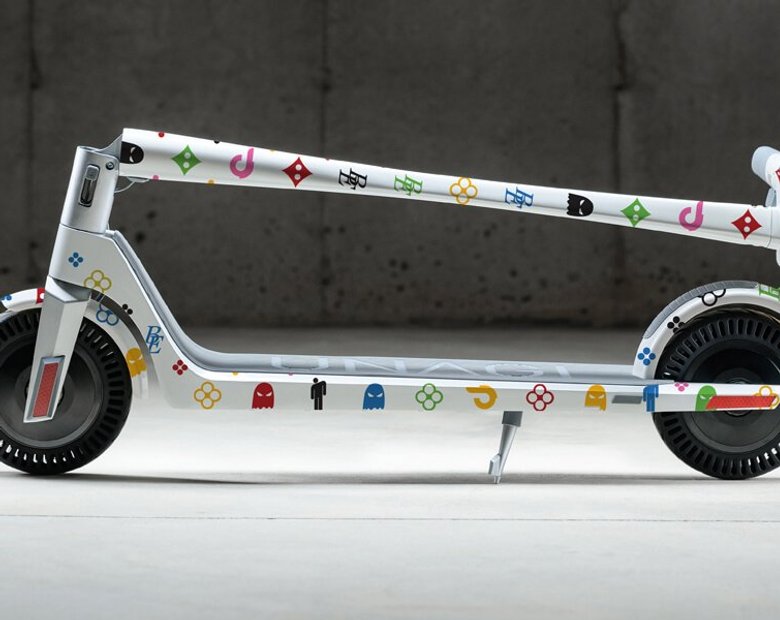Micromobility is here to stay, and it’s changing how we experience urban life for the better. With Unagi’s membership program, you can enjoy all the benefits of a top-tier electric scooter without the sky-high price of ownership or the inconvenience of ride-sharing.
From scooter sharing to scooter subscriptions, the electric scooter market is on fire. According to a report by Grand View Research, the e scooter industry is soaring with a staggering value of over $33.18 billion in 2022; and experts predict a compound annual growth rate of 9.9% from 2021 to 2030.
As electric scooter companies strive to push the boundaries of range, performance, and affordability, the leading companies are diving headfirst into the world of battery innovation, to discover the next big thing that could revolutionize the industry further.
Because we are on the brink of a new era for electric scooter batteries, one where batteries are more reliable, powerful, and long-lasting. We're so close we can practically smell it. In the not too distant future, electric scooters will be the ultimate mode of transportation, dominating urban mobility with unprecedented levels of convenience, sustainability, all the while delivering an exhilarating riding experience.
In this article, we'll take a closer look at the electrifying innovations happening in the realm of electric scooter batteries. From the promises of graphene batteries to the latest trends shaping the future of micromobility, get ready to explore the exciting path that lies ahead.
Current battery chemistries

In order to revolutionize battery performance in the future, it's essential to understand the current players in an e scooter's battery management system.
The star of the show at the moment is undoubtedly the mighty lithium-ion battery. It's the go-to choice for most modern electric scooters, thanks to its high energy density and fast rechargeability (it's also the one that powers the Unagi Model One). Over the years, lithium-ion batteries have undergone remarkable advancements, delivering improved energy densities that allow for extended journey ranges without adding extra weight or bulk.
Now, let's not forget the old-timers. Older scooter models often rely on lead acid batteries, a more cost-effective option, albeit with lower energy storage capacity. We also have nickel metal hydride (NiMH) and zinc-air batteries in the mix, although they're less commonly found in electric scooters.
R&D in battery chemistries
While lithium-ion, lead acid, and nickel-metal hydride batteries have played their roles in powering the development of electric scooters as we know them - lithium-ion batteries shone with their lightweight design and high power output, while lead acid batteries offered a more economical option, they each have limitations that hinder their efficiency and longevity.
And so as technology marches forward, innovative battery chemistries are emerging with game-changing properties. Think solid-state electrolytes that reduce internal resistance and enhance safety. Or lithium iron phosphate cells that offer superior thermal stability. And what about nanowire electrodes that supercharge charge/discharge time cycles.
These advancements empower manufacturers to create more robust and reliable batteries, resulting in electric scooters that deliver outstanding performance and endurance. When you aren't limited by your battery's range, or weighed down by spare swappable batteries or removable batteries, urban transportation is thrown wide open. Where do you want to go next? With the electric scooters of the future, anywhere is within reach.
And then we have solid state electrolytes, a promising technology that could potentially transform the electric scooter battery landscape, taking performance capabilities to dizzying new heights and capabilities. By utilizing solid state electrolytes, we can expect improved charge/discharge times and reduced internal resistance within the cell, leading to enhanced efficiency and longer-lasting batteries.
But that's not all...
Nanomaterials technology is also stepping onto the stage, bringing the potential for smaller battery sizes without compromising energy densities. Meaning electric scooters can become even more compact and agile, while still packing a punch when it comes to power.
Watch this space because your ride is about to get wild!
Solid state batteries

So just what is a solid state battery? Solid state batteries are the rising stars of their field. Unlike their liquid or gel-based counterparts (found in traditional lithium-ion batteries), solid state batteries boast solid electrodes and electrolytes, technologies that bring a host of advantages to the table, including:
- Improved energy density, enabling electric scooters to travel even greater distances on a single charge.
- Faster charging capabilities, reducing the downtime between exhilarating rides.
- Potentially safer performance, thanks to the reduced risk of fire or explosion.
- Plus, they can handle a wider range of operating temperatures, making them reliable companions in various weather conditions.
But the potential of solid state batteries doesn't stop there.
These futuristic compact powerhouses have the ability to extend the range and power output of electric scooters, while simultaneously shrinking in size compared to current technologies. And this has to be one of the most exciting prospects, because it paves the way for sleeker, more efficient scooters zipping through city streets.
Of course, there are hurdles to overcome before solid state batteries become commercially viable. For example cost effectiveness relative to existing technologies; scalability for large-scale applications like electric vehicles and grid storage systems; and developing manufacturing processes for mass production are among the challenges on the road ahead. Not to mention long-term stability - we don't know yet whether these batteries will remain reliable and durable over time.
Which is why researchers are actively exploring new materials and groundbreaking approaches to address these challenges head-on.
One such avenue of investigation we touched on above involves composite electrode designs that incorporate the wonder material graphene. By harnessing the unique properties of graphene, battery safety and longevity can be enhanced from cycle to cycle, ensuring a more enjoyable and worry-free riding experience.
And who knows what other surprises lie in store? The future may unveil exciting combinations of different chemistries within a single battery cell, tailored to meet specific requirements such as high energy density or rapid charging times.

What about lithium sulfur batteries?
Lithium sulfur batteries are making waves in the electric scooter industry as a step up from lithium ion batteries; being hailed as an efficient and cost-effective solution for clean and sustainable energy.
First and foremost, their high energy density allows electric scooters to go the extra mile on a single charge. But that's not all—these batteries also offer a lightweight design, making them an economical choice without compromising riding performance. And then there's their environmental credentials—they are non-toxic and eco-friendly, ticking all the right boxes for ec0-conscientious riders and manufacturers.
So how do lithium sulfur batteries work their magic? It's all about the chemical energy stored within. These batteries store energy in the form of lithium ions and sulfide molecules. When the particles mingle inside the battery cell, electrons are released, generating an electric current. And when it's time to recharge, the process is reversed, allowing the battery to store even more energy than conventional lead acid or nickel metal hydride batteries.
These batteries have been shown to deliver higher peak power outputs compared to traditional storage technologies. Plus, their longer cycle life, thanks to their lower self-discharge rate, ensures they stay reliable over the long haul. Meaning you can count on a consistent power supply from your electric scooter, providing a smooth and uninterrupted riding experience for longer, without having to stop and swap batteries quite so often.
With their environmental benefits, lightweight design, and impressive energy capacity, these batteries are tailor-made for powering electric scooters. And let's not forget their unwavering reliability, making them the go-to choice for those seeking longevity and consistent performance.
What about lithium polymer?
For those seeking a balance of safety and performance, Lithium Polymer (LiPo) technology presents an intriguing option. LiPo batteries offer several advantages over lead-acid and Li-ion cells. They excel in charge retention capabilities, and their flexible pouch construction allows for lighter weight designs. Moreover, LiPo batteries have lower fire risks due to their solid electrolyte design, as opposed to liquid electrolyte designs found in other chemistries.
However, LiPo batteries do have a higher upfront cost compared to traditional lithium-ion solutions. Nevertheless, their significantly higher energy densities per unit mass/volume make them ideal for applications where space is at a premium, such as electric scooter usage scenarios.
So what's in store for the next generation of electric scooter battery technology?

The future of battery technology is, quite frankly, unfolding right before your eyes.
One fascinating area of development revolves around harnessing renewable energy sources for our transportation needs, replacing our reliance on fossil fuels.
Solar power, in particular, has already made its mark in the automotive industry, helping power the electric motor in electric cars. But the challenge with using this alternative energy source for e-scooters lies in efficiently storing it for widespread use. Just imagine though, a world where solar-powered electric scooters become the norm, tapping into the sun's energy to keep you moving.
With endless possibilities and zero carbon emissions, where would you go?
And the quest for better batteries doesn't stop there. Engineers and scientists are pushing the boundaries to create batteries that are not only powerful but also incredibly durable. Picture electric scooters with extended range capabilities, allowing you to venture further than ever before. And charging? Lightning-fast thanks to advancements like silicon anodes, batteries can now hold more energy while maintaining a compact size.
The future is bright, and the possibilities are endless. Whether it's solar-powered solutions or batteries that push the limits of performance, the next decade promises exciting innovations that will revolutionize how we power everything from our hand held devices to our EVs.
In summary
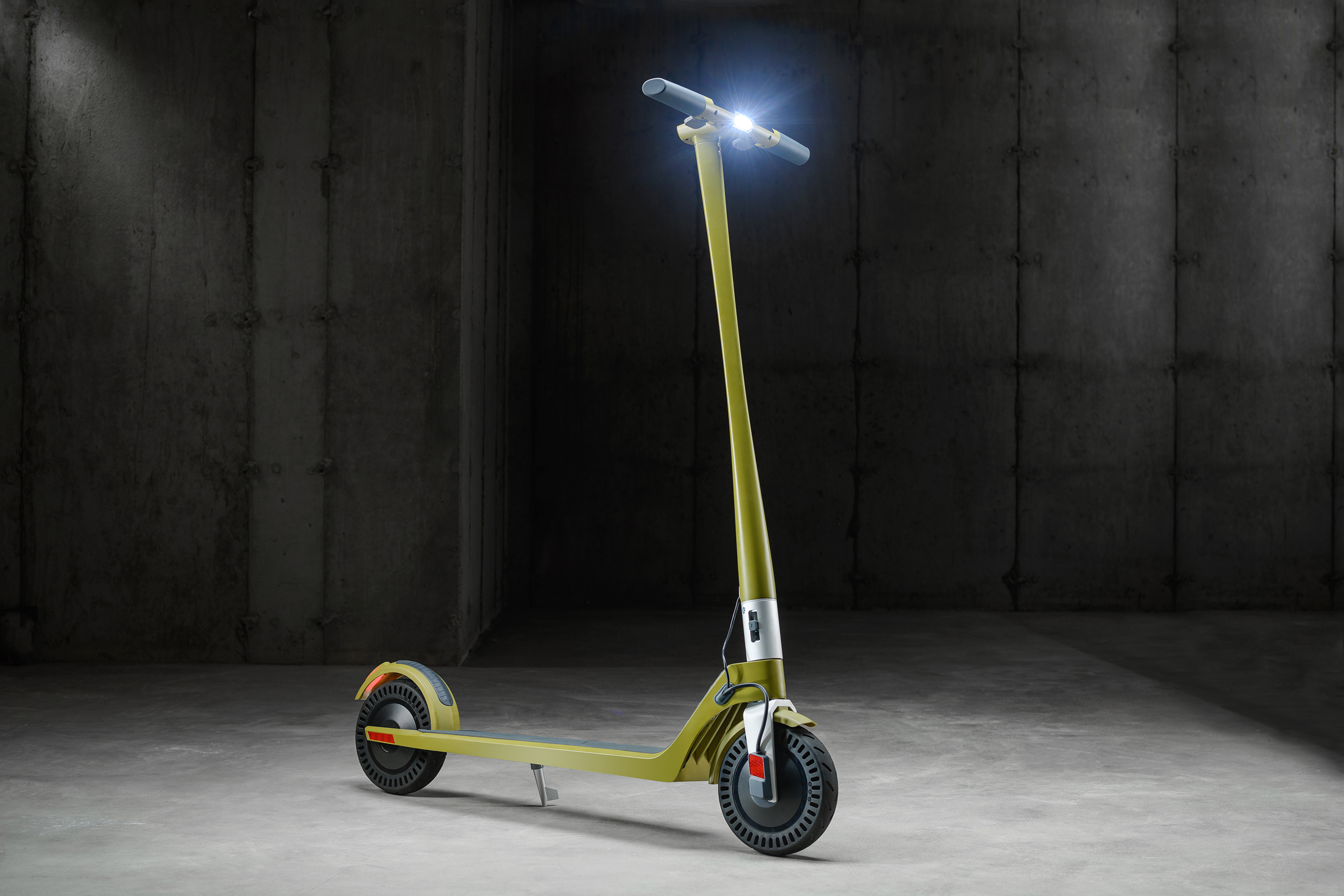
From solid state batteries to lithium sulfur alternatives, the future of electric scooter batteries is brimming with possibilities. As the pursuit of battery technology progresses, the future of electric scooters shines bright.
Advancements in chemistry, materials science, electronics engineering, and manufacturing processes continue to push the boundaries of innovation, propelling the electric scooter industry forward into a world of limitless possibilities. With increased range and enhanced performance on the horizon, riders can expect more thrilling adventures and greater convenience.
So, hop on and get ready for an electrifying journey ahead. The fusion of technology and mobility is set to redefine the way we travel, and Unagi are at the forefront of this revolution. With every breakthrough in battery research, we edge closer to a future where electric scooters become even more efficient, reliable, and indispensable companions for our daily adventures.
The road ahead is electrifying, and the best is yet to come!

Stay current with the latest U.S. electric scooter laws in our 2025 guide. Updated annually since our first comprehensive guide, ensuring you have the most recent state and city regulations to ride responsibly”
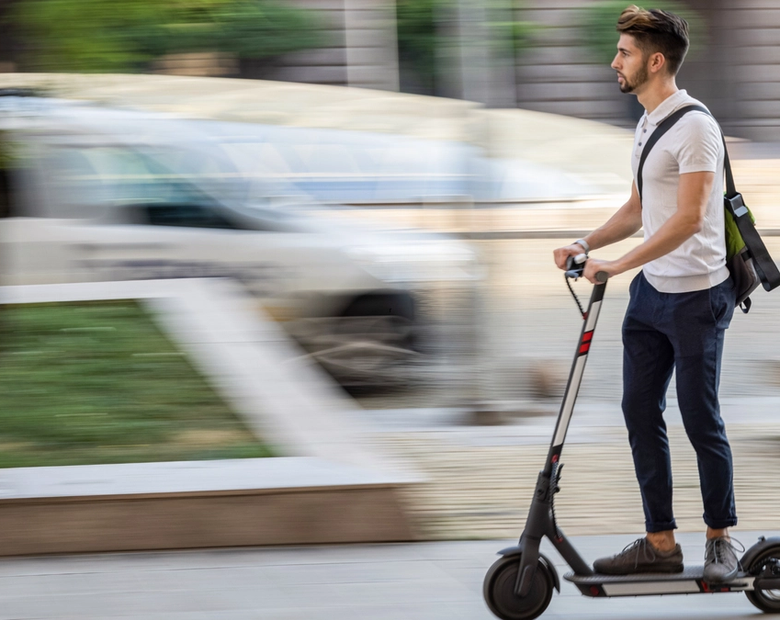
The Slack Core 920R is currently the fastest electric scooter in 2025 that you can purchase without the need for pre-order.
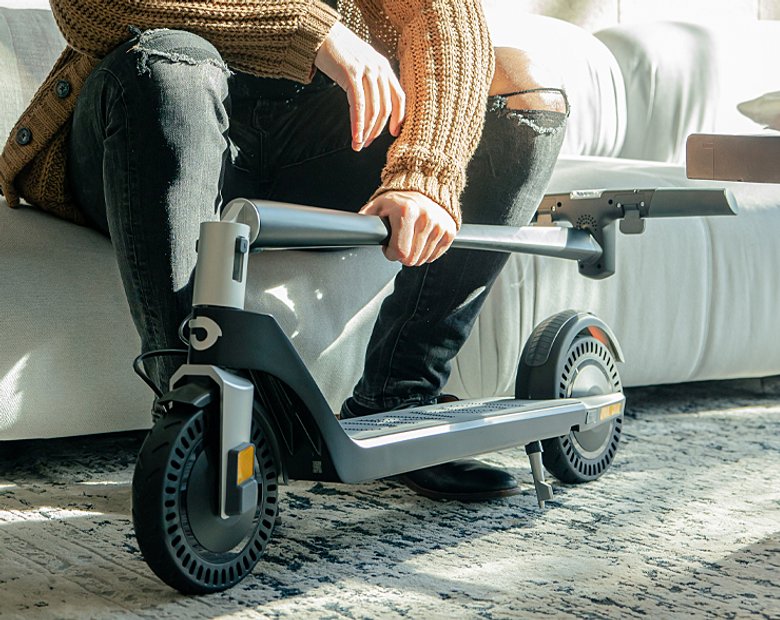
Our selection of the best electric scooters 2025 spans the fastest e-scooters to the most portable ones, the ones designed for city riding and off-road, the best scooters for rain, budget electric scooters for students, and more powerful ones for skilled riders.
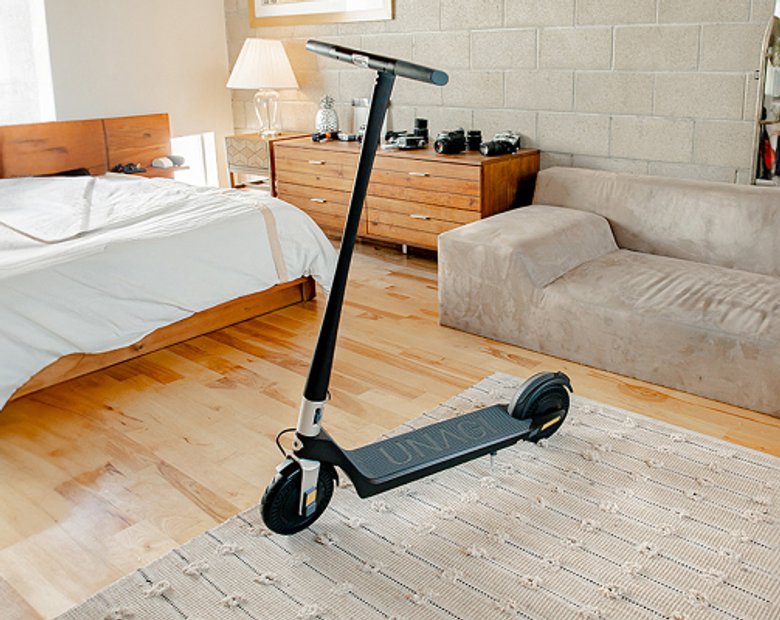
The Unagi Voyager is the best lightweight electric scooter for adults and teenagers. It is the ultraportable sequel to its predecessor, the Unagi Model One Classic.
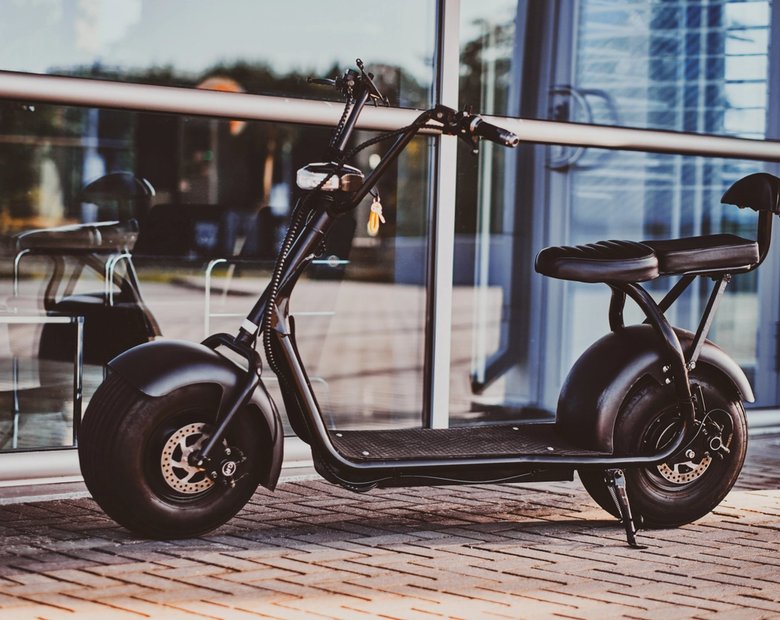
If you're wondering whether an electric scooter with a seat is right for you, this is a detailed article that would suit your need.

Understand which personal electric vehicle is best, the choice between an electric bike or electric scooter might already be made for you by some critical factors, including portability and storage capacity.
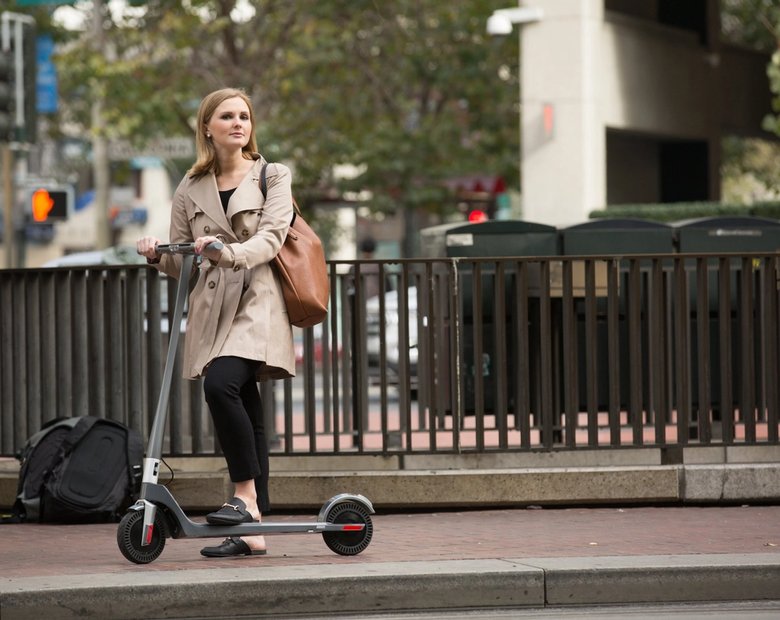
In the U.S., most states don't require a license. For those that do, they usually just ask for a regular driver's license or a learner's permit.

Yes, you can bring an electric scooter on a plane, but it needs to have a lithium battery smaller than 100 watt-hours, which most don't.

Manufacturers advise against riding electric scooters in the rain. The main reasons are: water can fry the electronics, make the ride dangerous, and void your warranty.

The basis and the premise of my work is that we either operate out of love or we operate out of fear...Time is currency. The coolest thing about the scooters is that it's really quick, and it goes uphill. From there, traveling more efficiently and having a good time doing it--I think that's the most important thing.

Cynthia Leu has a full plate. A tech worker by day, Cynthia spends her off time balancing the parallel lives of a powerlifter, entrepreneur, mental health advocate, and more. Riding Unagi helps this USMC veteran cut down on everyday…

https://www.youtube.com/watch?v=7m2hVBE62LY Rasheed Muhammad is sick of Los Angeles traffic. In order to preserve his sanity, Rasheed has traded his everyday driving habit for the portable and beautiful Unagi Model One. It’s an essential accessory for navigating LA streets -- and…

Rich Lee, Co-Founder of San Francisco’s SPRO Coffee Lab, wants to share his love for coffee with the world. He depends on riding Unagi to avoid the hassle of navigating the parking crunch in the booming Mission Bay neighborhood.…

